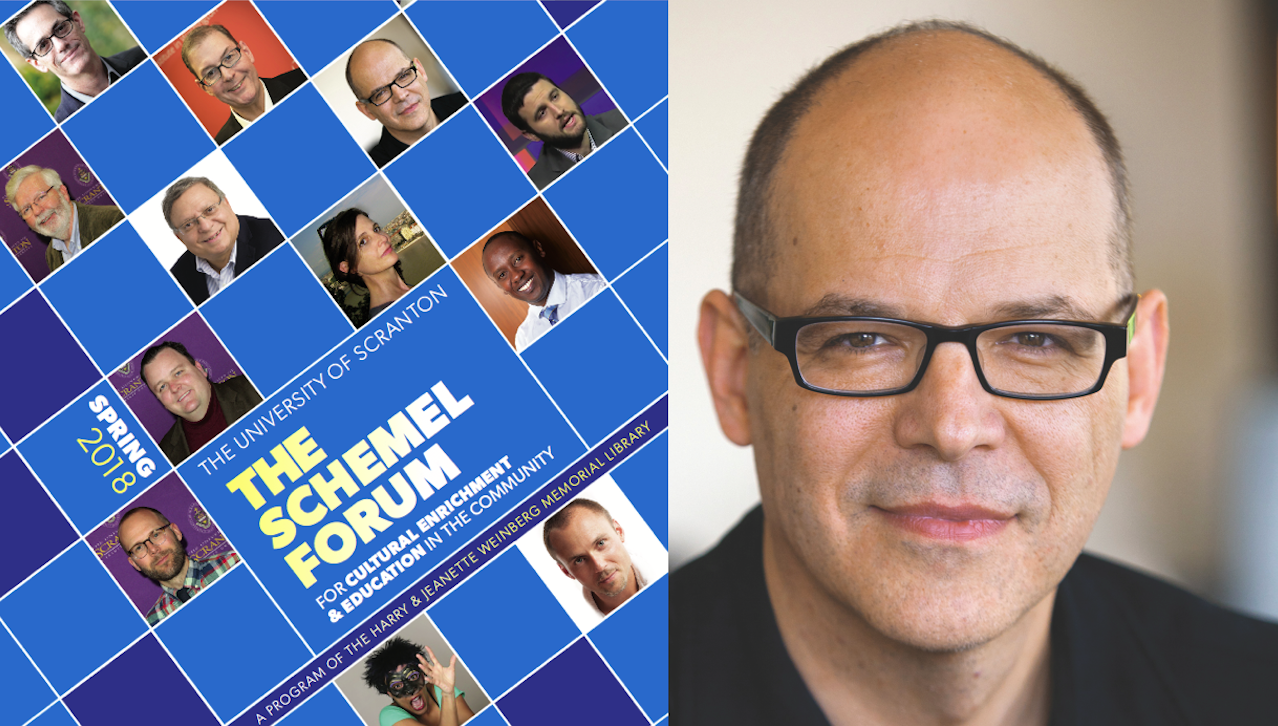Schemel Forum Peeks at Vietnam Behind Closed Doors

“Almost exactly 50 years ago, March 31, 1968, when Lyndon Johnson stepped before the television cameras and part way through the speech he said, ‘I shall not seek and I will not accept the nomination from my party for another term as your president,’” said Pulitzer Prize-winning author Fredrik Logevall, Ph.D.
The mystery behind former President Johnson’s reason for not seeking another term as president was discussed a University of Scranton’s Schemel Forum luncheon seminar, titled “JFK, LBJ and the Paradox of Vietnam” and presented by Dr. Logevall recently on campus.
“I think he withdrew because of the war and because of the divisions that the war had created,” said Dr. Logevall, who won the 2013 Pulizer Prize in history for his book “Embers of War: The Fall of an Empire and the Making of America’s Vietnam.”
The United States had been involved in Vietnam beforehand in the 1950s with former President Dwight D. Eisenhower sending over military advisory groups to Vietnam to help the Republic of Vietnam fight the North Vietnamese communists said Dr. Logevall. In the early 1960s, however, former President John F. Kennedy increased United States presence in Vietnam significantly.
“He also authorized a coup in his final month against the south Vietnamese leader Ngo Dinh Diem, a fellow catholic, somebody who had been president of south Vietnam for a long time and American officials concluded the war could not be won with Diem,” Dr. Logewall said.
The coup was successful and Diem was assassinated along with his brother Ngo Dinh Nhu on November 1, 1963.
“JFK dictates into a machine (recording device), on the fourth of November, his thoughts on the Diem coup and he says this, ‘I feel we must bear a good deal of responsibility for what’s happened,’” Dr. Logevall said. “It’s testimony to how much he struggled with this coup.”
Three weeks later former President Kennedy was assassinated in Dallas, Texas.
“Then Lyndon Johnson takes power and of course now is dealt a difficult hand in part because of the coup,” Dr. Logevall said.
In March of 1965 former President Johnson officially sent United States combat forces into Vietnam.
“Publically Johnson would project optimism about the war but the truth is he was always a bleak skeptic on Vietnam,” Dr. Logevall said. “In May of 1964, he says to McGeorge Bundy, who is the national security advisor, ‘I don’t think it is worth fighting for and I don’t think we can get out, it’s just the biggest damn mess.’ That is almost a full year before the first United States ground troops are dispatched into the war.”
Dr. Logevall said the mystery still remains of why former President Johnson pursued a path of war in Vietnam when he had his own doubts.
“Surely part of the answer to the question is that Johnson felt if he did this gradually without putting the nation on full war footing he could take the path of least resistance,” Dr. Logevall said. “Especially in domestic political terms it was an easier proposition for Johnson to hope that these new measures would succeed.”
Former President Johnson would continue his hope that his path of least resistance would succeed, until the end of his one term presidency and he left the White House with the nation still involved in Vietnam. It would take until April of 1975 for the United States to officially leave Vietnam.
“I would say that from day one until the end Lyndon Johnson was a hawk on Vietnam, this proves that even doubting warriors can be committed warriors,” Dr. Logevall said.
A reception and book signing at the Lackawanna Historical Society’s Catlin House followed the lecture.
The Schemel Forum World Affairs Luncheon Seminar series is sponsored by Munley Law.






